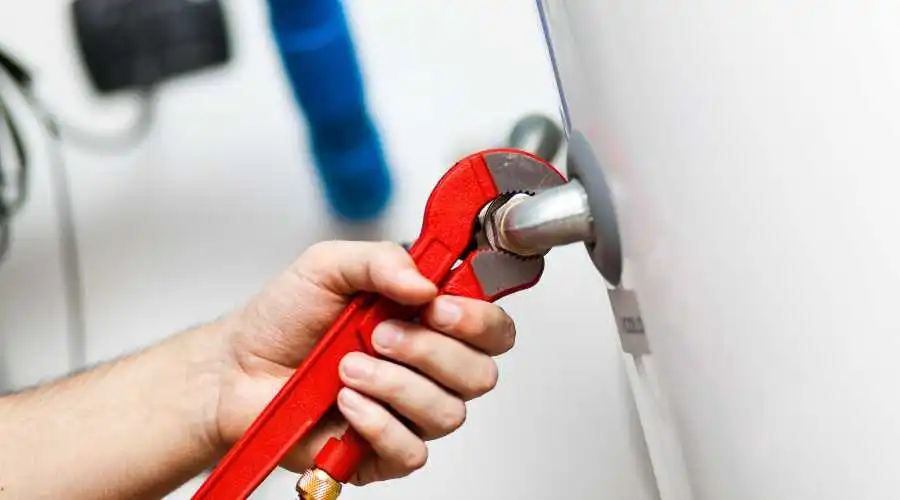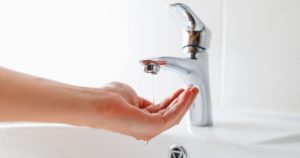As the air turns crisp and leaves fall, it’s time to focus on preparing your plumbing for the cooler months. Proactive steps now can save you from expensive repairs and inconvenient plumbing issues during autumn and winter.
Key Takeaway
- Prepare your plumbing for fall to avoid costly repairs during colder months. Key actions include insulating pipes, maintaining water heaters,
- cleaning drains, and disconnecting outdoor hoses. Proactive maintenance ensures comfort and reduces the risk of damage.
Why Fall Plumbing Maintenance is Crucial
Fall brings a unique set of challenges for your plumbing system. From freezing pipes to drain obstructions, the seasonal changes can strain your water systems. Temperatures often drop quickly, causing water to freeze and expand while falling leaves can clog gutters and drains. Without preparation, these issues could lead to costly repairs and disruptions.
Common Fall Plumbing Problems
- Burst and Frozen Pipes
Sudden drops in temperature can freeze the water inside your pipes, causing them to expand and burst. Even in early fall, temperatures can reach below freezing, making uninsulated pipes particularly vulnerable.
- Faulty Heating Systems
Cold weather puts extra pressure on your water heating system. As the system compensates for the temperature drop, it may overwork and fail if not properly maintained. A malfunctioning water heater can leave you with no hot water during the chilly months.
- Drain Obstruction
Falling leaves, while picturesque, can lead to serious blockages in your gutters and drains. These obstructions can cause water to back up, potentially leading to water damage and structural issues in your home.
How to Prepare Your Plumbing for Fall
Clean Your Drain Pipes and Gutters
Prevent blockages by regularly clearing fallen leaves and debris from your gutters and drainpipes. Clogged gutters can lead to water overflow, damaging your roof and foundation. A clean drainage system ensures water flows smoothly and minimizes the risk of leaks.
Inspect and Maintain Water Heaters
Fall is the perfect time to service your water heater. Tasks include:
- Checking for leaks and ensuring proper connections.
- Inspecting fuel gas piping and sediment traps.
- Testing water expansion and overall system efficiency.
Regular maintenance helps your water heater function effectively during increased usage in the colder months.
Disconnect and Store Outdoor Hoses
Leaving hoses connected during freezing weather can cause them to crack or burst. Disconnect hoses, drain any remaining water, and store them indoors to prevent damage. This simple step also protects exterior faucets from freezing and breaking.
Turn Off and Drain Exterior Faucets
Use the shut-off valve inside your home to disconnect the exterior plumbing system. Open outdoor faucet valves to drain any remaining water. This prevents water from freezing in the pipes and reduces the risk of bursts.
Seal Gaps Around Pipes
Cracks between pipes and walls allow cold air to seep in, increasing the likelihood of freezing. Seal these gaps using caulking, insulation, or weather stripping. A professional plumber can help identify and fix hidden vulnerabilities in your plumbing system.
Insulate Pipes
Install rubber or foam insulation around pipes, especially those exposed to outdoor temperatures. Insulating pipes ensures that water stays warm, reducing the risk of freezing and conserving energy. This is particularly crucial for outdoor pipes and those in unheated areas like basements and garages.
Benefits of Fall Plumbing Maintenance
- Prevent Costly Repairs: Addressing potential issues early can save you from expensive emergency repairs during winter.
- Ensure Comfort: A functioning plumbing system ensures uninterrupted water supply and heating during the colder months.
- Protect Your Home: Proper maintenance minimizes the risk of water damage caused by leaks, burst pipes, or drainage issues.
- Save Energy: Efficient water heaters and insulated pipes reduce energy consumption, lowering utility bills.
Frequently Asked Questions (FAQ)
1. How do I know if my pipes are at risk of freezing?
Pipes in unheated areas, like basements, attics, or exterior walls, are most vulnerable. Insulate these pipes and keep your home heated to minimize the risk.
2. Can I use DIY methods to insulate my pipes?
Yes, you can use foam pipe insulation or heat tape, which is available at hardware stores. However, for extensive or hard-to-reach areas, consider hiring a professional.
3. How often should I service my water heater?
Water heaters should be inspected annually, ideally before the fall, to ensure they function efficiently during increased usage in colder months.
4. What should I do if my pipes freeze?
Turn off the water supply immediately and use a hairdryer or heating pad to thaw the frozen section. Avoid using open flames, and contact a plumber if the pipe is damaged or inaccessible.
5. Why is sealing gaps around pipes important?
Sealing gaps prevents cold air from entering and freezing your pipes, reducing the risk of bursts and conserving energy.
6. Can falling leaves damage underground plumbing?
Yes, falling leaves can clog outdoor drains and gutters, leading to water backups that may affect underground plumbing. Regular cleaning prevents this issue.
7. What are the signs of a failing water heater?
Signs include fluctuating water temperature, rusty water, leaks, or strange noises from the heater. Have a professional inspect your unit if you notice these issues.
Final Thoughts
Preparing your plumbing system for fall is an essential step in protecting your home from seasonal challenges. From cleaning gutters to insulating pipes, a proactive approach ensures your plumbing functions smoothly all year round. For expert assistance, contact BJC Clifton Plumbers, your trusted partner for routine maintenance and emergency services.




